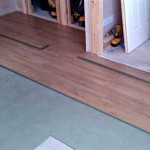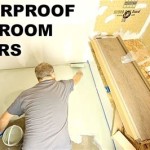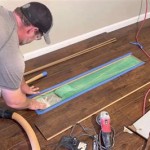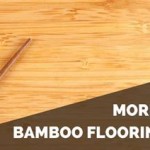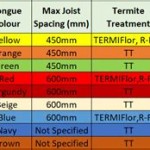A Comprehensive Guide to Wood Flooring for Your Home
Transforming your home with the warmth and elegance of wood flooring can be a rewarding experience. However, navigating the diverse options and technical considerations can be daunting. This comprehensive guide will lead you through every step, empowering you to make informed choices and achieve the perfect wood floor for your home.
Step 1: Choosing the Right Type
Solid Wood: Classic and timeless, solid wood flooring is made from a single piece of timber. Its durability and natural beauty make it an investment that enhances the value of your home. However, it requires regular maintenance and may be sensitive to moisture.
Engineered Wood: Constructed with multiple layers of wood, engineered wood combines the stability of plywood with the aesthetic appeal of hardwood. It is more resistant to moisture and temperature fluctuations, making it a practical choice for areas like kitchens and bathrooms.
Step 2: Selecting the Wood Species
Oak: A popular and versatile choice, oak offers a wide range of tones and grain patterns. Its durability makes it suitable for high-traffic areas.
Maple: Known for its light color and even grain, maple imparts a Scandinavian-inspired elegance. It is resistant to wear and tear, making it ideal for active families.
Step 3: Determining the Finish
Unfinished: Allows for customization of color and sheen. Requires sanding and finishing after installation, which can increase labor costs.
Pre-finished: Comes with a factory-applied finish in a wide range of styles. Saves time and effort during installation, but limits the ability to customize the final look.
Step 4: Choosing the Installation Method
Nailed Down: Most secure method, providing long-term stability. Requires a subfloor that can support nailing.
Staple Down: Similar to nailing, but uses staples instead of nails. A faster and less intrusive method.
Floating: Planks are connected to each other but not to the subfloor. Provides greater flexibility and can be installed over existing flooring.
Step 5: Maintaining Your Wood Floor
Regular Cleaning: Sweep or vacuum regularly to remove dirt and debris. Avoid using harsh chemicals or abrasive cleaning tools.
Deep Cleaning: Periodically deep clean your floor using a wood floor cleaner and a damp mop. Follow the manufacturer's instructions carefully.
Moisture Control: Keep humidity levels below 60% to prevent warping and buckling. Use dehumidifiers or air conditioners as needed.
Conclusion
With proper planning and installation, a wood floor can transform your home into a warm and inviting space. By understanding the different types, species, finishes, installation methods, and maintenance requirements, you can embark on this home improvement project with confidence and create a beautiful, long-lasting wood floor that will be enjoyed for years to come.

A Comprehensive Guide To Choosing The Perfect Wood Flooring For Your Home Lamiwood

A Comprehensive Guide To Flooring In Your Customizable Home Designs Diyanni Homes

The Complete Guide To Choosing Perfect Hardwood Flooring For Your Home

Comprehensive Guide To Selecting Flooring For Your Home Singapore Laminate

The Complete Guide To Engineered Wood Flooring Improve Look And Sustaility Of Your Home Decor Imperial

Diy Wood Floor Installation Step By Guide For Homeowners

A Comprehensive Guide To Choosing The Perfect Laminate Flooring Saanvi Enterprises

Do Hardwood Floors Increase Home Value Roi Cost

Modern Parquet Flooring Ideas For Your Home Beautiful Homes

The Complete Guide To Maintenance Of Hardwood Floor
See Also
